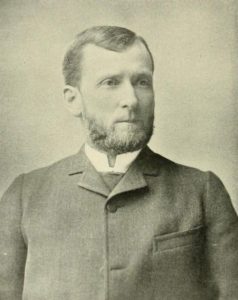
Joseph McKenna (1898-1925)
Lived from 1843 to 1926.
Early Life and Legal Career
Joseph McKenna was born on August 10, 1843 in Philadelphia, Pennsylvania to Irish Catholic Immigrants. Growing up, he attended St. Joseph’s College before studying law at the Benicia Collegiate Institute in Benicia, California. After being admitted to the California bar in 1865, McKenna became District Attorney for Solano County. He then campaigned for and won a seat in the California State Assembly, where he spent two years. In 1885, McKenna was elected to the U.S. House of Representatives. He served four terms in the House before being appointed to the Ninth Circuit Court of Appeals in 1892 by President Benjamin Harris. Five years later, in 1897, he was appointed the 42nd Attorney General of the United States by President William McKinley. McKenna served in that capacity until 1898.
Appointment to the Supreme Court
McKenna was appointed an Associate Justice of the Supreme Court of the United States in 1898 by President William McKinley. After his confirmation, he studied law at Columbia Law School to prepare for the burdens he would face as a justice. While he failed to develop a consistent legal philosophy, McKenna was responsible for authoring several important decisions. One of the most notable came in United States v. U.S. Steel Corporation, which held that antitrust cases would be decided on the “rule of reason” principle–only alleged monopolistic combinations that are in unreasonable restraint of trade are illegal.
McKenna was known to be a centrist, and was one of the most vigorous members of the Supreme Court. During his tenure, McKenna authored 614 majority opinions and 146 dissenting opinions. In January 1925, after his performance began to decline due to a stroke suffered ten-years prior, McKenna was forced to step down from the bench. By the end of his tenure, he was unable to write coherent opinions.
Death
McKenna died on November 21, 1926 in Washington, D.C. at the age of 83. His remains are buried in the city’s Mount Olivet Cemetery.
Notable Cases
Hipolite Egg Co. v. United States (1911)
United States v. U.S. Steel Corporation (1920)







